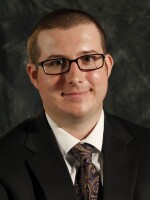The death this weekend of 15-year-old Haley Smith on Kenton Morrison Road is the second fatal hit-and-run accident in St. Johns County in as many weeks.
43-year-old Randy Miller was struck and killed Nov. 8 as he rode his bicycle on State Road 16.
Hit-and-run accidents often leave victims’ friends and family yearning for closure, including an answer to the question of why the offending driver didn’t stay at the scene or report their actions.
“Whenever there is an initial crisis or trauma, something that’s unplanned and quite extreme, the reaction of the brain is to secrete cortisol and adrenaline, which creates the fight or flight response,” said Jacksonville Beach-based psychotherapist Nicole Story.
Story said drivers may choose “fight” by approaching the other party to the accident, or “flight” by either freezing in place or fleeing the scene. Either reaction, she said, is due to shock.
“When you think of the five stages of grief, the first one is denial,” she said, adding that the act of fleeing the scene is usually not pre-meditated.
Eventually that rush of hormones begins to dissipate and the driver may begin to think more clearly, which Story said could lead to a confession in the days following an accident.
University of North Florida psychology professor Dr. Tracy Alloway, co-author of the book The Working Memory Advantage, said that in many cases hit-and-run accidents occur because a driver’s working memory has become “overloaded,” forcing errors in judgment.
People with poor working memory also may have a more difficult time empathizing with others.
“You can see that at work with the hit-and-run when all that they’re thinking about is, ‘I’ve got to get out of here,’” Alloway said.
There are also a minority of people with pre-existing psychopathologies who could be predisposed to leaving the scene, specifically those with a history of impulsivity, narcissism, or anti-social behavior.
"There’s a small percentage of people who may just not care,” Story said.
You can follow Patrick Donges on Twitter @patrickhdonges.






